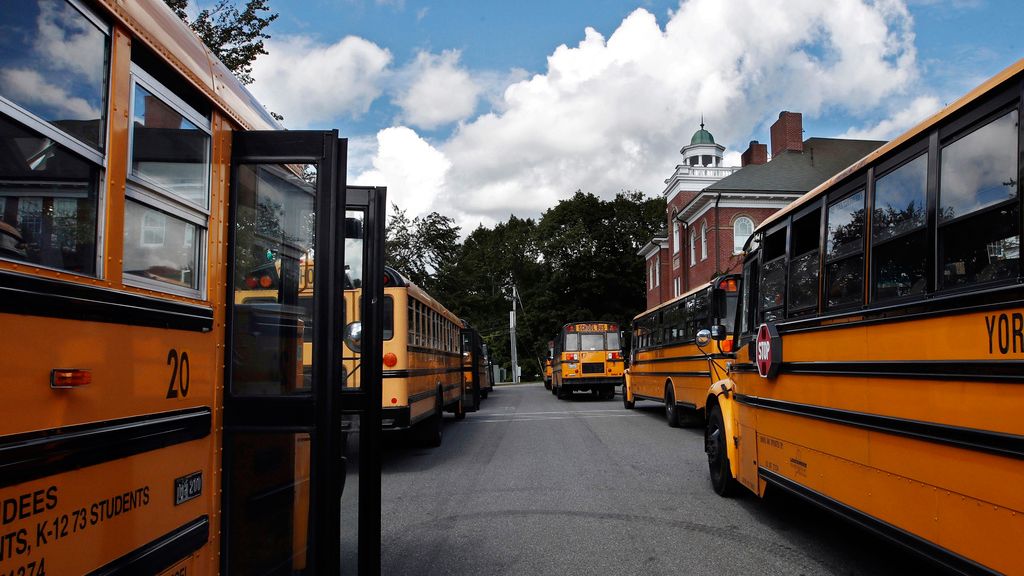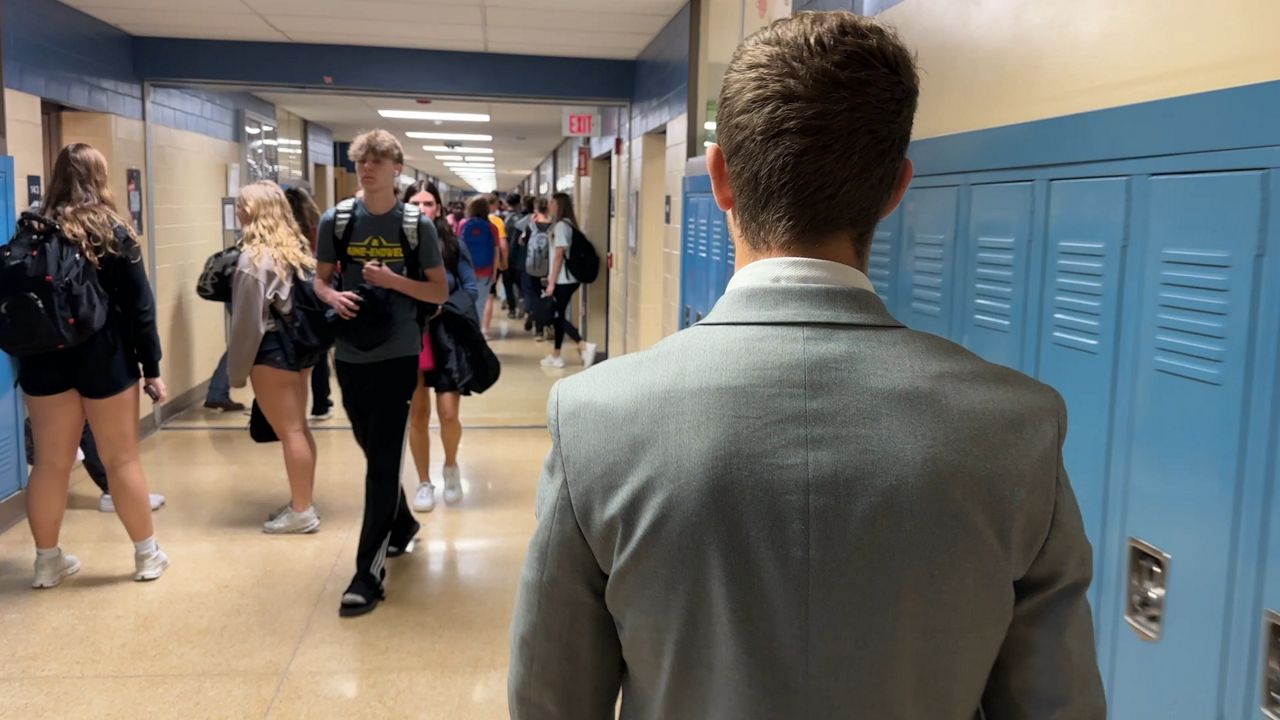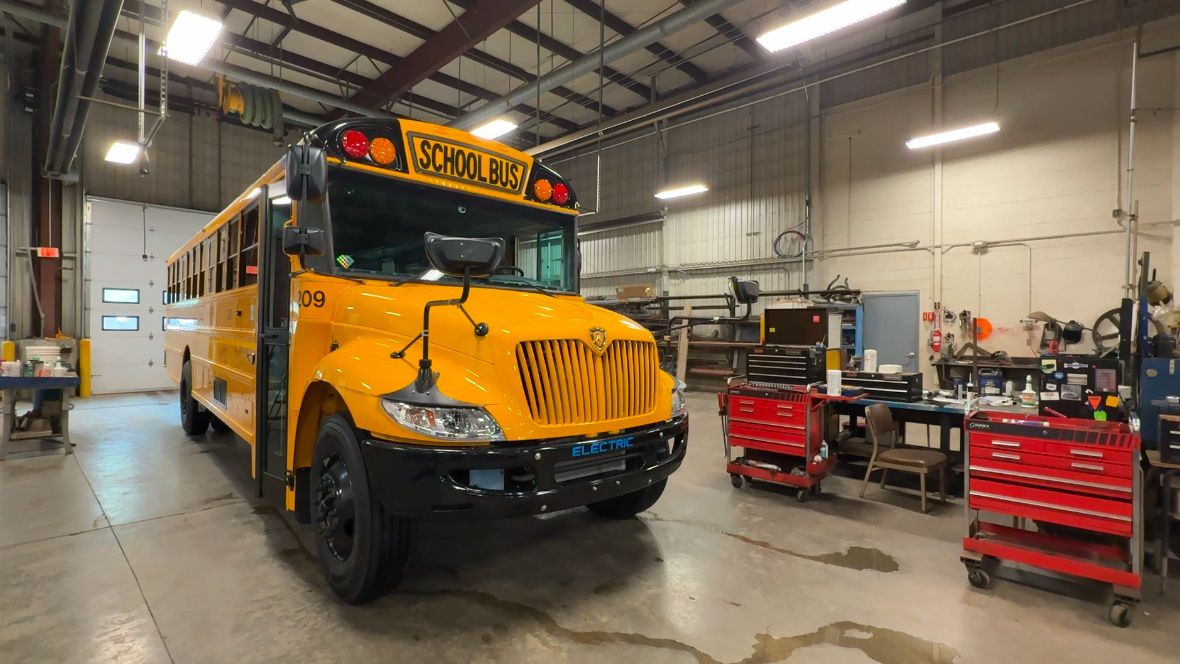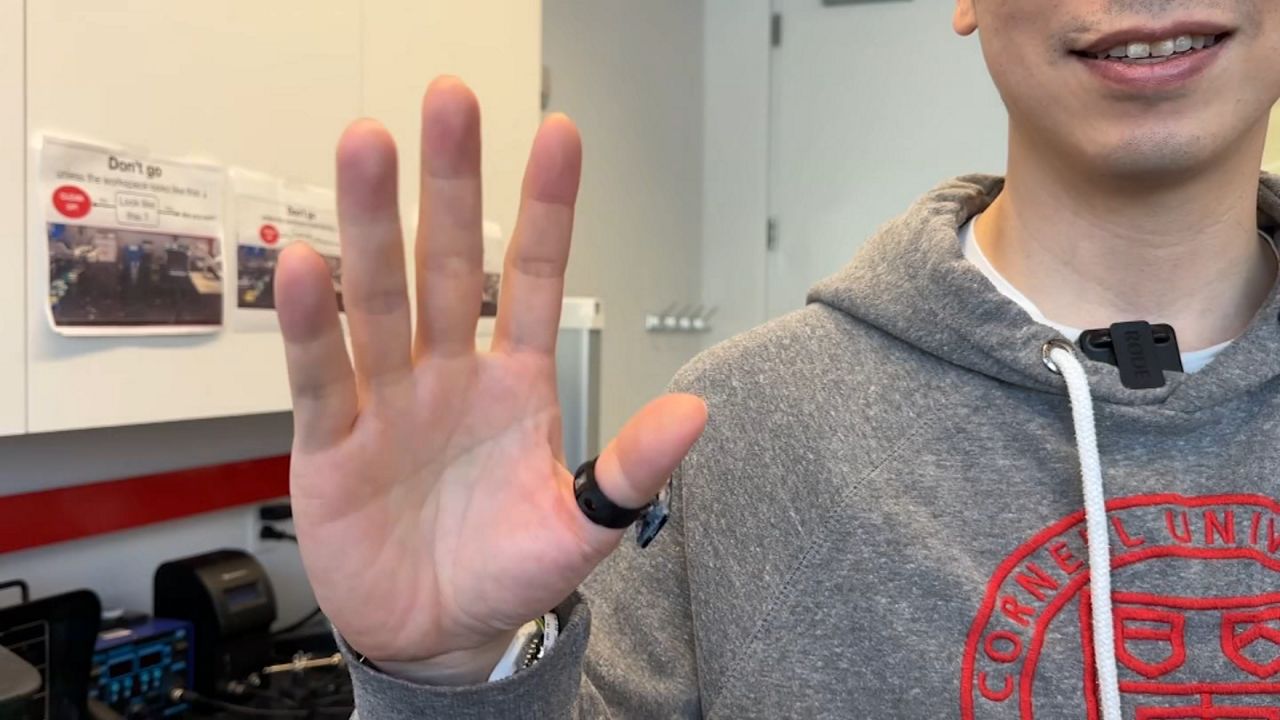Every simulation brings Erika Schanbacher, a student taking part in a simulation, one step closer to her goal of becoming a science educator.
“I didn’t realize that I wanted to go into education at all," she said. "Specifically science educators kinda showed me how much I really enjoy the education learning portion.”
However, being an educator is more than just teaching. The simulations show Schanbacher how to approach different scenarios before facing them in a professional setting.
“I definitely am an outgoing person, so encountering these situations in a controlled environment is really helpful," said Schanbacher.
On this day, Schanbacher is simulating a meeting with a parent. She does six in a semester, and all of them have different challenges.
"It’s not just dealing with a difficult parent, it’s sometimes students struggling, whether it be school, mental health, any topics we’ve pretty much covered," Schanbacher said.
Benjamin Dotger runs all of the simulations. The saying is "practice makes perfect," but this also gives students a chance to refine their decision making and approach.
“Our goal is to give teachers an opportunity to rehearse, to practice thinking about the different avenues that that conversation or that set of decisions may take one down and then to practice engaging in it," he said.
However, it's hard to get better without reviewing it. Immediately after every simulation students have an initial debrief to go over what they remember. Then they get the video footage to review on their own and gather positive and negative tape. Up to a week after the simulation, students analyze the film together.
“The review really centers the student, the student voice, and their perspectives on performance," said Dotger.
Experience can go a long way.
“If I encounter any of these situations, I definitely will stay calm, cool, collected and respond thoughtfully and constructively," said Schanbacher.








